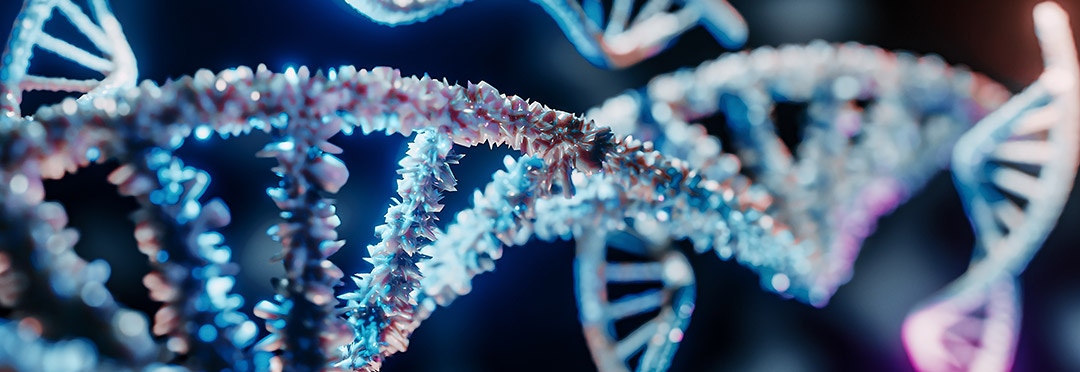WholePanel Testing
Harness the power of genome sequencing with our expertly curated WholePanel™ testing

WholePanels are expertly curated gene panels that use genome sequencing to offer extensive coverage.
This genome sequencing-based method allows clients to experience all of the traditional benefits of whole genome sequencing, including more uniform coverage in targeted genes.
Key features include:
- Full intronic coverage
- Single nucleotide variants
- Short tandem repeat screening
- If allele expansion cannot be reliably ruled out, further confirmatory diagnostic testing is recommended to provide a definitive diagnosis
- Mean coverage ≥ 30X across introns and exons
- Reliable detection of intragenic deletions and duplications
- Includes large-scale CNV events, such as microdeletions and other gene- and chromosomal-level events
Resources
WholeCancer™ panel
Approximately 5-10% of all cancers are hereditary, caused by a gene mutation in the family. This number may be higher in certain cancers like ovarian, with up to 20% being hereditary. Identifying hereditary cancer predisposition allows for proactive medical management to reduce cancer risk, including earlier and more frequent screenings, preventive surgery options, and certain medications that can reduce cancer risk. In individuals with a cancer diagnosis, identifying hereditary cancer allows for the prevention of secondary cancers and testing family members to identify their cancer risk and recommended cancer screenings.
The WholeCancer panel includes over 70 genes associated to inherited cancers.
WholeAtaxia™ panel
This panel may help identify or be used for a better understanding of the following conditions:
- Ataxia with oculomotor apraxia
- Ataxia-telangiectasia
- Coenzyme Q10 deficiency
- Episodic ataxia
- Friedreich ataxia
- Marinesco-Sjogren syndrome
- Mitochondrial recessive ataxia syndrome
- Posterior column ataxia with retinitis pigmentosa
- Spastic ataxia
- Spinocerebellar ataxia
The WholeAtaxia panel includes over 60 genes associated to ataxias.
WholeCardiology™ panel
This panel may help identify or be used for a better understanding of the following conditions:
- Dilated Cardiomyopathy
- Hypertrophic Cardiomyopathy
- Left Ventricular Noncompaction (LVNC)
- Arrhythmogenic Right Ventricular Cardiomyopathy (ARVC)
- Catecholaminergic Polymorphic Ventricular Tachycardia (CVPT)
- Long QT syndrome
- Short QT syndrome
- Brugada syndrome
- Sudden Cardiac Arrest
- Noonan syndrome
The WholeCardiology panel includes over 80 genes associated to cardiac disorders.
WholeMuscularDystrophy™ panel
This panel may help identify or be used for a better understanding of the following conditions:
- Congenital Muscular Dystrophies
- Dystroglycanopathy
- Dystrophinopathy
- Emery-Dreifuss muscular dystrophy
- Epidermolysis bullosa simplex with muscular dystrophy
- Facioscapulohumeral muscular dystrophy 2
- Glycogen storage disease type II, Pompe disease
- LAMA2-related muscular dystrophy
- Limb-Girdle muscular dystrophy
- Myotonic dystrophy
- Neutral lipid storage disease with myopathy
- Oculopharyngeal muscular dystrophy
The WholeMuscularDystrophy panel includes over 60 genes associated to muscular dystrophies.
Testing options
WholeAtaxia™ Panel
WholeCancer™ Panel
WholeCardiology™ Panel
WholeMuscularDystrophy™ Panel
How to order
Step 1
Test selection and place order
Step 2
Specimen collection
Step 3
Sample shipment
How to order
1. Choose your test
Select the correct test for your patient and download and fill out the Clinical Genomics test requisition form.
- Please make sure that all sections are completed, and that the patient has signed an informed consent form.
2. Collect a sample
Obtain a sample for testing from the patient using one of the provided Revvity Omics test packs. If you do not have a kit available in your office, please contact us here and we can have one sent out to your office.
- Ensure that all samples are labeled with the patient’s name and date of birth.
- For Trio tests, parental and/or family member samples can be submitted separately from the patient/proband, if needed. Additional samples must be received by the laboratory within three weeks of the original patient/proband submission.
- All parental/family member samples must be submitted with a fully completed requisition and informed consent form, complete with both physician and patient signatures.
3. Send a sample
Package the patient sample, informed consent form, and test requisition form back into the test kit, and utilize the included pre-paid shipping label to return the kit to Revvity Omics for processing.
- As a patient’s clinical presentation is an essential part of fully interpreting genetic test results, we ask that you kindly include any applicable medical records or clinical notes with the sample at the time of test submission.
This testing service has not been cleared or approved by the U.S. Food and Drug Administration. Testing services may not be licensed in accordance with the laws in all countries. The availability of specific test offerings is dependent upon laboratory location. The content on this page is provided for informational purposes only, not as medical advice. It is not intended to substitute the consultation, diagnosis, and/or treatment provided by a qualified licensed physician or other medical professionals.




























